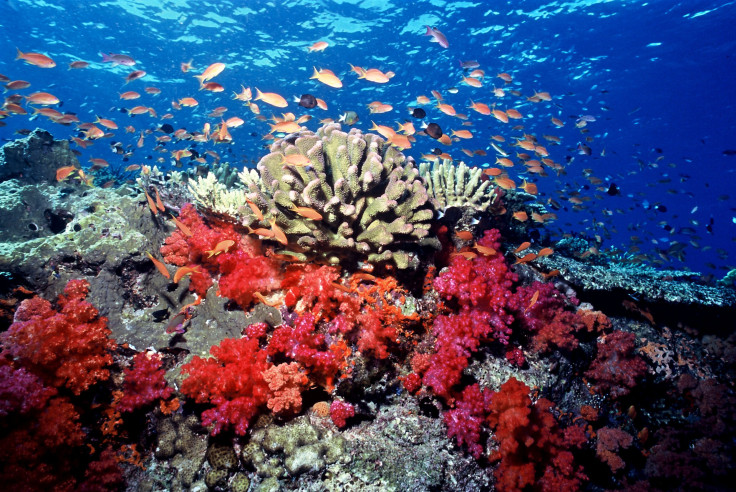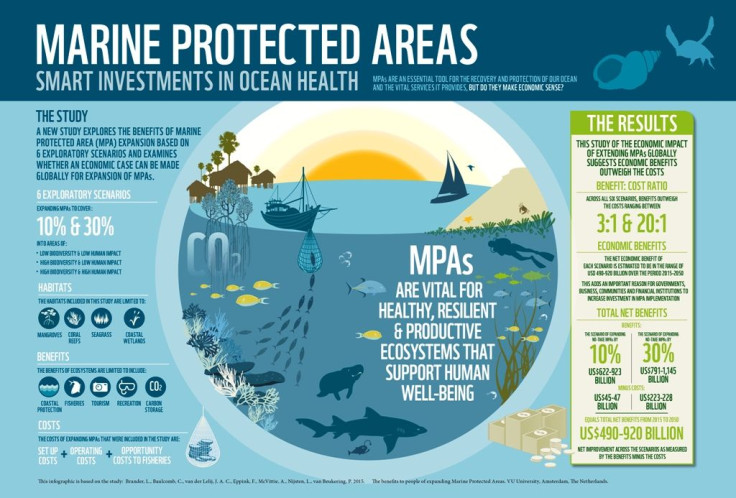World Economy To Gain By Over $900B From Better Protection Of Oceans: WWF

Protecting the planet's oceans is not only an environmental imperative but also a sound business decision as it could add $900 billion to the global economy in a few decades, according to a study by the World Wildlife Fund (WWF). Creating marine protected areas (MPAs) will yield a three-fold return for every dollar invested in the exercise, the study suggests.
The WWF-commissioned study, produced by researchers at Amsterdam’s VU University and published Wednesday, found that increased protection of critical marine habitats could generate net benefits worth between $490 billion and $920 billion in the next 35 years. The efforts could also help create between 150,000 and 180,000 jobs worldwide by 2050, the study said.
“A healthy ocean safeguards our coasts, stores carbon, creates employment and feeds families,” Marco Lambertini, director general of WWF International, said in a statement. “Marine protected areas can have the double impact of contributing to a healthy ocean and creating important economic opportunities.”

The WWF report coincides with the ongoing World Ocean Summit 2015 in Cascais, Portugal. WWF’s participation at the summit, which is focused on the future of the planet's oceans, highlights the need to safeguard them.
The WWF is calling for 10 percent of the world's oceans to be classified as MPAs by 2020, and increasing that number to 30 percent by 2030. Currently, less than 4 percent of the planet's oceans are designated for protection, while existing MPAs continue to suffer from ineffective implementation and management of the benefits accorded to them by their MPA status.
“MPAs are known to attract and sustain coastal tourism and recreation, supporting growth of employment and commerce associated with these sectors at the local, regional and national level,” WWF said, in the report. “MPAs can protect critical habitats, including migration routes, places of refuge against predators, spawning grounds and nursery areas.”
The WWF also urged the world’s governments to “include strong targets and indicators for the ocean” when they meet in September to agree on a set of goals for sustainable development.
In April, a WWF report assessed all of the ocean’s resources and assets, giving it a combined value of $24 trillion, making it the world’s seventh-largest economy. However, the report also warned that this value was rapidly eroding as the oceans' resources become increasingly polluted or exploited.
© Copyright IBTimes 2025. All rights reserved.






















